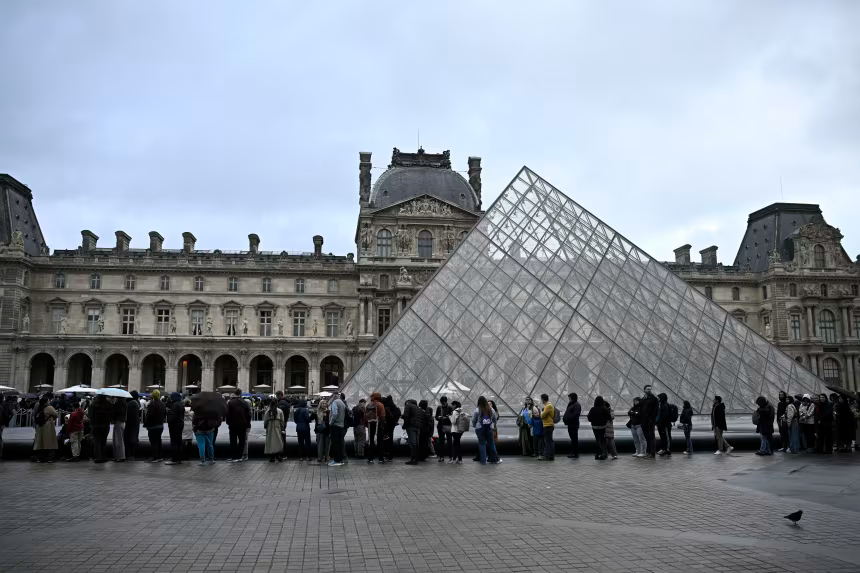
The Louvre museum in Paris announced it would remain closed Monday as investigations continue into Sunday’s extraordinary theft of historic jewelry – and experts say the prospects of recovering the treasures are slim.
In a post on X, the museum said it regretted Monday’s closure, as France begins to digest the implications of the brazen heist in which robbers made off with artefacts from the French crown jewels, dating from the Napoleonic era.
The thieves used a truck-mounted ladder to gain access to the Apollo Gallery, one of the most ornate rooms in the Louvre, through a window. Armed with tools including an angle grinder and a blowtorch, they targeted two high-security display cases. The entire operation lasted just seven minutes, authorities said.
Eight of the nine items taken remain unaccounted for, including a tiara and necklace worn by Queen Marie-Amélie and Queen Hortense.
French Justice Minister Gerald Darmanin admitted that the Louvre heist exposed security failings at the museum.
“One can wonder about the fact that, for example, the windows hadn’t been secured, about the fact that a basket lift was on a public road,” he said on France Inter radio. “What is certain is that we have failed.”
“The French people all feel like they’ve been robbed,” he added.
Natalie Goulet, a Centrist member of the French senate, was asked on BBC radio about the prospects of recovering the jewelry, replying: “None.”
“The jewelry will be cut up and sold and used as a money-laundering system,” she said. “It’s the easiest way to clean dirty money.”
The robbery was probably linked to organized crime, Goulet said.
“They have absolutely no morals,” she said. “They don’t appreciate the jewelry as a piece of history but the way to clean their dirty money.”
Goulet added that she was “very, very pessimistic” about the prospects of recovering the jewelry.
Elaine Sciolino, author of “Adventures in the Louvre: How to Fall in Love with the World’s Greatest Museum,” was similarly downbeat.
“They can be dissembled, they can be cut, they can be sold on the black market,” she told BBC Radio. “It is unlikely that all of them are going to be recuperated in the shape that they are now.”
Sciolino emphasized the significance of a robbery at the Louvre, which was originally built as a fortress before becoming a palace for the French royal family.
“This attack really is a dagger into the heart of France and French history,” she said.
Chris Marinello, CEO of Art Recovery International, a company that tracks down stolen artworks, believes that French police have a limited window in which they could recover the jewelry.
“There is a race going on right now,” he told BBC World Service’s Newshour radio show on Sunday, adding that law enforcement will “know that in the next 24 or 48 hours, if these thieves are not caught, those pieces are probably long gone.”
The robbers “are not going to keep them intact, they are going to break them up, melt down the valuable metal, recut any valuable stones and hide evidence of their crime,” said Marinello.
There is “virtually no way” of tracing the jewels in that instance, he added.
“They may catch the criminals but they won’t recover the jewels,” said Marinello.












